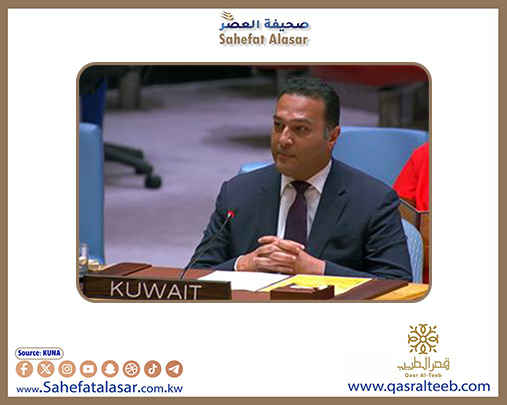


The Gulf Cooperation Council (GCC) at the United Nations called today, Thursday, for enhancing international and national accountability mechanisms in response to the systematic violations against children in multiple conflict zones, particularly in the Gaza Strip, amid persistent impunity.
The statement was delivered by Faisal Al-Enezi, Deputy Permanent Representative of Kuwait to the UN and Minister Plenipotentiary, during a UN Security Council session on Children and Armed Conflict.
Al-Enezi noted, "Today, we stand on the eve of the 20th anniversary of Resolution 1612 (2005), which marked a qualitative leap in strengthening international protection for children affected by conflict by establishing a monitoring and reporting mechanism and a dedicated task force on grave violations."
He warned that, according to a UN report, "there has been an unprecedented surge in grave violations—a 25% increase compared to the previous year—with over 41,000 documented violations, the highest number since the monitoring mechanism was established."
Al-Enezi stressed that "the time has come to shift from developing frameworks to ensuring practical implementation of commitments on the ground, with all parties complying with their obligations under international humanitarian and human rights law, including special protections for children in armed conflicts."
The GCC also expressed concern over the UN report’s findings on the "frequent use of explosive weapons in populated areas and their long-term impact on children, including limb loss, physical disabilities, and psychological trauma." He emphasized adherence to international humanitarian law and awareness programs on explosive remnants as critical to civilian protection.
Highlighting a "disturbing 35% rise in sexual violence against children," Al-Enezi stressed that such acts constitute "grave violations" under UNSC Resolution 1882 (2009). He urged legal accountability, gender-sensitive responses, psychosocial support, and victim access to justice "without fear."
On behalf of the GCC, he called for bolstering the UN’s monitoring mechanism, especially in escalating conflicts, and integrating child protection into peacebuilding and post-conflict efforts. The group also demanded "full, unimpeded humanitarian access for children, including food, healthcare, and mental support," while warning against funding cuts to critical programs.
The GCC welcomed the inclusion of Israeli occupation forces in the UN report’s annexes as "a crucial step toward recognizing the severity of violations and upholding accountability," urging the preservation of the monitoring system’s "independence, impartiality, and credibility, free from politicization."
Concluding, Al-Enezi stated, "Our children are not mere statistics in reports—they are the essence of our collective future. The continued violence against them with impunity represents a collective failure we must not accept."
He reaffirmed the GCC’s commitment to working with the Security Council, the UN, and all partners to "end violations against children, strengthen protection and accountability, and build a safer, more just world for them."